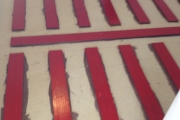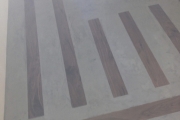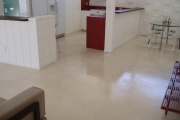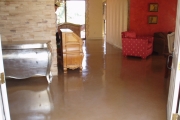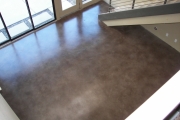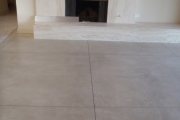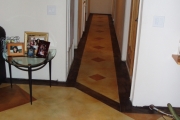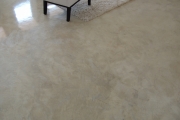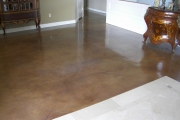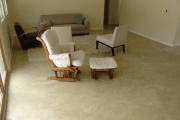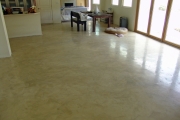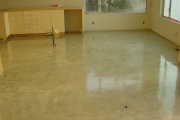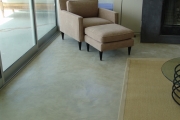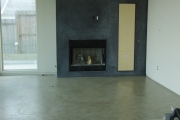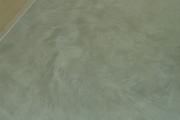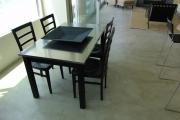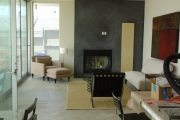
Micro topping
Micro-toppings are defined by their thickness. They are generally between a 1/32"-1/8” thickness and applied either by hand troweling, using a squeegee and can even be broom applied for a broom finish. Micro-toppings are semi-flexible. They are enhanced using polymer or liquid latex along with cementitious powder and fine sand.
Micro toppings come in four standard grain sizes and two standard colors - white and grey base or can be integrally colored. The micro topping is put down consecutively, starting off with a base coat, followed by an intermediate coat and in some cases depending on the build, a couple coats followed with a finer coat for a smoother finish.
Sanding takes place in between coats for a smooth more uniform look. Micro topping installations can be done interior or exterior.
Contact Form
Versatility

Micro toppings can be used on ceilings, countertops, showers, food concession areas, water parks, sidewalks and driveways. The most important item is the concrete substrate must be in structurally sound condition because it is very thin and the ability to hide is critical and will crack if the substrate moves.
Micro toppings are cost effective. They are typically 25% cheaper than most laminates or toppings. It is a great alternative to a blotchy, discolored concrete substrate that needs a new canvas or palette.
The versatility of micro topping is only limited by your imagination. Micro toppings applied require design skills and creativity to produce some wonderful scenarios.
Control Your Level of Shine

Different sealers can be used to get low gloss, gloss or matte finish even when used in conjunction with repair mortars. A low floor can be built up with a mortar, then apply a micro topping that provides you with a brand new canvas.
Stencils can cut out logos or any design over the top of a base coat, for example, in a light grey, apply the stencil, install a secondary color in a darker grey, then you release the stencil and expose the artistic ability of the design.
Micro toppings can be used over the top of self levelers to take a floor that’s an inch low in elevation, back up to normal elevation to meet all your thresholds and openings.
PROCESS GALLERY
ACI Projects
Want to See More Completed Jobs? We have a whole section dedicated to past projects that we have documented.

